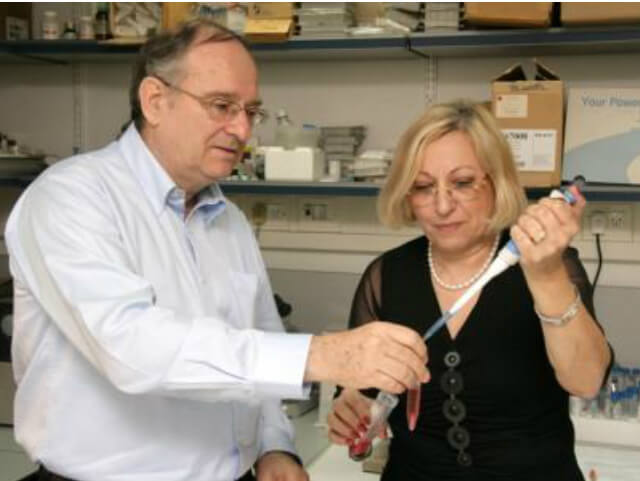Israeli study: sleep apnea protects the body during a heart attack

Obstructive Sleep Apnea (OSA) is a medical syndrome in which a person simply stops breathing during sleep. Each such pause may last 20-40 seconds, and repeat many times throughout the night. The percentage of people with the syndrome is not known with certainty, because many are not aware of it at all, and it is estimated at 5-10% of the adult population (men have it about twice as many times as women). Many of the patients suffer from side effects such as fatigue during the day, weight gain and depression. The lack of oxygen created in the blood due to the cessation of breathing causes an increase in blood pressure, and the syndrome increases the risk of heart attacks and cerebrovascular events. It is estimated that among those suffering from cardiovascular diseases, about half also have OSA.
Oxygen-free rehabilitation
The close connection between breathing disorders and cardiovascular diseases has been proven in many studies, including studies at the Technion School of Medicine, which revealed that the lack of oxygen in those suffering from OSA accelerates the development of inflammatory processes, among other things. However, above the findings in the field a mystery hovers - if there is such a close connection between the phenomena, why in those with sleep apnea, a heart attack does not cause more severe damage than in heart patients with normal breathing? A team of researchers from the Technion's sleep laboratory, led by Dr. Lina Lavie, tried to solve this mystery. The researchers examined the sleep of 40 men, a few days after a heart attack, half of them with OSA and half of them with normal breathing. Among other things, the researchers took blood samples from the subjects during sleep, and discovered a surprising finding: in the blood of those suffering from sleep apnea, much higher levels of cells and proteins were found that participate in the restoration processes of heart tissue, and in building new blood vessels. Among other things, they found a high level of progenitor cells of the endothelial tissue, which actually serve as building blocks for new blood vessels; of white blood cells that accelerate the growth of new blood vessels; and of substances known to promote the growth of blood vessels. Lavi and her partners - Dr. Slava Berger, Prof. Doron Aharonson and Prof. Peretz Lavi - concluded from the results that the moderate lack of oxygen (hypoxia, in medical terms) stimulates the body to work to restore the tissues of the heart and blood vessels, and therefore sleep apnea may actually protect the heart patients, and take care of the ongoing renewal and rehabilitation of the tissues affected by cardiovascular diseases.
in vitro confirmation
To test this hypothesis, the researchers took blood samples from 12 subjects - men and women - who do not suffer from apnea. Their blood cells were grown in cultures, in an environment with a cyclical lack of oxygen. A few days later, the researchers discovered a similar result - in the blood cultures that were grown under partial hypoxia conditions, a significant increase in the concentration of endothelial progenitor cells and other growth factors was recorded, compared to the cultures whose oxygen supply was constant and normal. The findings strengthened the hypothesis that it is the moderate lack of oxygen that upgrades the level of activity of the natural rehabilitation system for the heart and blood vessels. The findings are prominently published in the American Journal of Respiratory and Critical Care Medicine, alongside an editorial explaining their importance.
Medical application
The mechanism of restoring the tissue of the heart and blood vessels through the recruitment of endothelial cells and other cells, is a mechanism well known to medicine, and it is activated when we experience a heart attack. Doctors and scientists have long been looking for methods to increase and strengthen this response - to improve the treatment the body gives itself, or to stimulate it as a preventive treatment. Attempts to activate the system using drugs, or even by injecting such cells into the arteries of the heart, have so far been unsuccessful. It is possible that the relatively simple method of applying mild hypoxia could help heart patients recover quickly after an attack. One of the next steps in the research will be to try to test in laboratory animals if this method really helps to reduce the damage of a heart attack. Another direction of the research will be to try to better understand the molecular mechanisms that activate the natural rehabilitation system, an understanding that will surely help doctors and scientists to optimize the methods for activating it in the body after a heart attack, and even - before it.

8 תגובות
thanks for the reply.
As far as I know, there have been attempts to inject various substances that provoke this reaction. Whole cells are more complicated to inject for many reasons, including immunocompatibility. In any case, so far these attempts have not been successful.
cpap machine
Amazing, this has been happening to me since I was young and it's really scary. Sometimes in the middle of the dream I just half wake up and lose my breath and it takes a few seconds for it to settle and then I fall asleep again. I got used to it already, it happens something like once a week. Because of this, I went to the doctor and he said it's because my body wakes up in the middle of the night before the muscles and then the lungs are not enough to supply the necessary oxygen..does that sound logical or is that not the reason and I have this OSA?
Isn't it simpler to inject the same cells and proteins into the body?